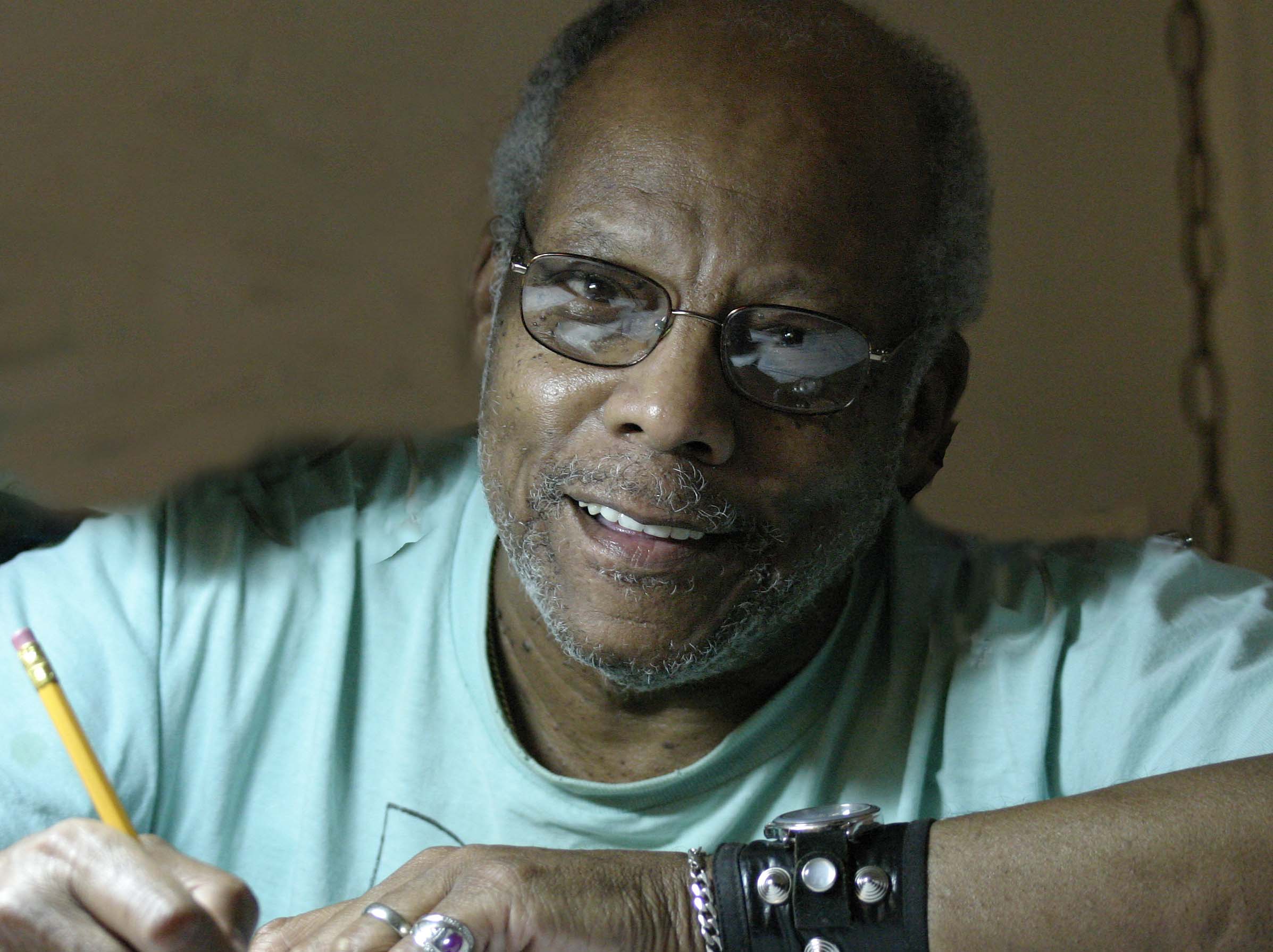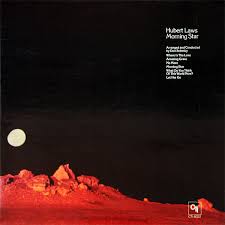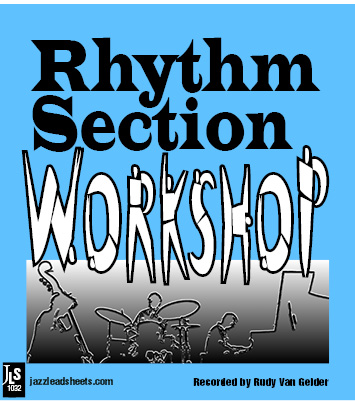Morning Star – Rodgers Grant
One of Rodgers Grant's best-known compositions is this melodic, standard-like but surprisingly intricate song. First recorded by Hubert Laws, it is available here also in an exclusive Rhythm Section Workshop trio recording, with Minus You audio tracks.
- Recording: Hubert Laws - Morning Star
- Recorded on: September, 1972
- Label: CTI (6022)
- Concert Key: E-flat
- Vocal Range: , to
- Style: Swing (medium)
- Flute, Electric Flute - Hubert Laws
- Flute, Alto Flute, Clarinet - Phil Bodner
- Flute, Alto Flute, Pic., E. Horn - Romeo Penque
- Bassoon - Jack Knitzer
- Trumpet - Allan Rubin, Marvin Stamm
- French Horn - Jimmy Buffington
- Trombone - Garnett Brown
- Vibes - David Friedman
- Electric Piano - Bob James
- Bass - Ron Carter
- Drums - Billy Cobham
Video
- Description
- Historical Notes
- Solos
- Piano Corner
- Bass Corner
- Drum Corner
- Guitar Corner
- Inside & Beyond
- Minus You
Rodgers' unusual and tricky offbeat triplet phrase in the B and D sections is subject to many interpretations; Hubert plays it almost as written, except for the first triplet which is played as three swung eighth notes. The out melody consists of the second half of the chorus, with a B♭ pedal on the 7th and 8th measures of the D section (as in our Rhythm Section Workshop version) which is extended four more measures as a coda; this resolves to a final D major triad with E♭ in the bass.
Hubert's flute sound is doubled an octave lower in the second and third choruses of his solo. He appears to be using a Varitone, the electronic woodwind effects unit popularized by Eddie Harris.
Lead sheets are available here and include the introduction; detailed individual rhythm section parts are under the Rhythm Section Workshop album cover, above right. A printed quintet arrangement from the Frank Wess/Johnny Coles Frank Wess/Johnny Coles recording is available from MusicDispatch/com.
Hubert Laws and Rodgers Grant first recorded together in Mongo Santamaria's band in 1964. Rodgers played on Hubert's 1966 album "Flute By-Laws" as well as his 1974 CTI album "In The Beginning."
This recording was made in the legendary Van Gelder Recording Studio, by Rudy, with direction and supervision by Creed Taylor, owner of CTI. Rudy and Creed worked often together; both men appreciated, and worked to achieve, beauty in sound.
Related Songs
Email Send Morning Star to a friend
- Recording: SFM Trio - Rhythm Section Workshop
- Recorded on: July 9, 2014
- Label: jazzleadsheets.com (JLS 1032)
- Concert Key: E-flat
- Vocal Range: , to
- Style: Swing (medium)
- Piano - Glenn Zaleski
- Bass - Bill Moring
- Drums - Evan Hughes
Video
- Description
- Historical Notes
- Solos
- Piano Corner
- Bass Corner
- Drum Corner
- Guitar Corner
- Inside & Beyond
- Minus You
The most notorious element of this song is the rhythm of the second through fourth measures of the B and D sections. This is a series of quarter note triplets starting on the "and" of beat 2, resulting in triplets that are not only over the bar line, but in fact over the beat—in theory, with perfectly even eighth notes, no notes will line up with the beats. The line is completed by two 16th notes at the end of the measure. With the swing feel that this song typically has, the third note of each triplet will in fact land on the beat—meaning that either the two 16th notes at the end of the phrase or the last quarter note triplet would need to be rushed in order to hit the downbeat of the next measure after the sequence. Many players have gotten around this imprecision by interpreting the melody freely, often playing behind the "beat" even though the melody is already that way. On our recording, pianist Glenn Zaleski takes the opposite approach and rushes the line slightly at the beginning, making the end of the phrase line up to anticipate the downbeat of the next measure.
Minus You tracks are available for piano, bass, and drums; click on the Minus You tab for more details. A printed quintet arrangement from the Frank Wess/Johnny Coles Frank Wess/Johnny Coles recording is available from MusicDispatch/com.
This song has been recorded quite a few times since the early '70s. It first appeared on Hubert Laws' 1972 album of the same title, and was further popularized by saxophonist Stan Getz. Getz never made a studio recording of the song but frequently performed it; his first live recording of it was on "Moments In Time," at the Keystone Korner in 1976. In the '80s it was recorded by Frank Wess and Johnny Coles on their album "Two At The Top" as well as by drummer Brian Melvin with Jaco Pastorius and pianist Jon Davis, and by tenor saxophonist Ralph Moore. Many of these recordings use the intro as an interlude before and/or after the solos, unlike our version.
This trio version was recorded by Rudy Van Gelder in the same studio as Hubert, however Hubert's recording was done before Rudy added the booth for the 9-foot Steinway grand that Glenn played in.

Rodgers has also provided a set of piano comping voicings. The intro here is the classic intro as it appears on both the Hubert Laws recording and our Rhythm Section Workshop recording. In this intro the right hand plays voicings based on the important melody notes while the left hand pedals. The comping voicings for both the head and the solo chorus are footballs (click the link for notes on Rodgers' use of the term "footballs" with regards to comping). On the head the pedal point is also included, as well as notable rhythmic hits. The coda is again the same as in our Rhythm Section Workshop version. These voicings can be used by a pianist if they are playing with a horn player along with our Minus Piano track. Click the Minus You tab for more details.
CLIP Format of the Minus You tracks:
-- intro
-- melody
-- piano solo 2 choruses
-- bass solo 1 chorus
-- out melody
-- coda
clip minus Piano
-- count off sets up the intro
-- play the intro and melody
-- solo 2 choruses
-- comp for the bass solo
-- play the out melody and coda
mp3 minus Bass
-- count off sets up the intro
-- play the intro
-- play figures and 2-feel for the melody
-- walk for the piano solo 2 choruses
-- solo 1 chorus
-- play figures and 2-feel for the out melody and coda
mp3 minus Drums - brushes throughout
-- count off sets up the intro
-- play figures/comp for the intro and melody
-- comp for the piano solo 2 choruses
-- comp for the bass solo 1 chorus
-- play figures/comp for the out melody and coda
Related Songs
Email Send Morning Star to a friend

Rodgers Grant
January 18, 1936 – April 12, 2012
Rodgers Grant was an American jazz pianist, composer, and lyricist. After having worked with saxophonist Hugo Dickens in the 1950s, he became pianist for Mongo Santamaría in the 1960s. In 1963, Grant wrote the hit, Yeh! Yeh! in collaboration with Pat Patrick. Jazz vocalist Jon Hendricks added original lyrics and recorded the song with Lambert and Bavan at the Newport Jazz Festival of 1963. It became an international hit as recorded by Georgie Fame and the Blue Flames in 1965. Read more...


